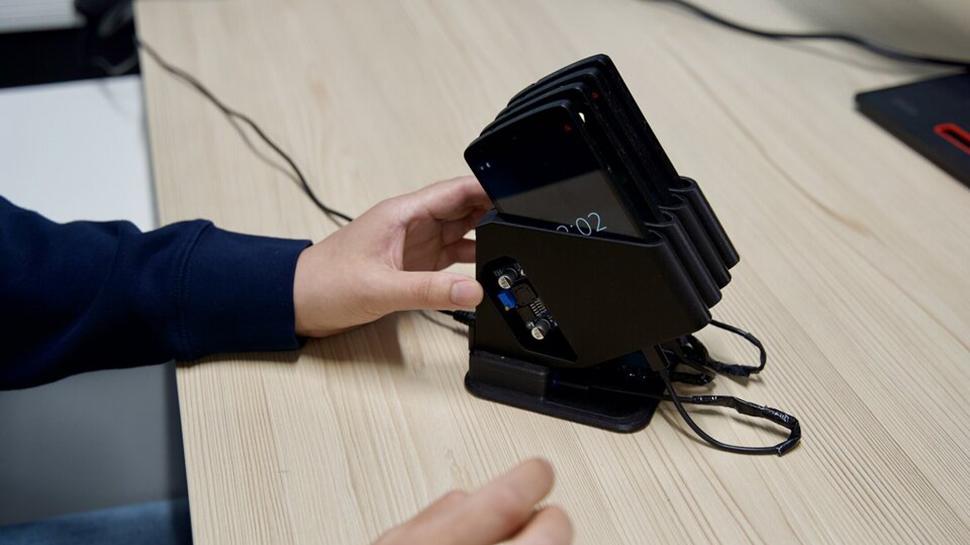- Old smartphones could be reused to support data collection and analysis
- University researchers built data centers from recycled phones to only 8 euros each
- The project shows that environmental winnings are possible through the recycling of creative unit
Each year, more than a billion smartphones are produced around the world, and most are thrown out within a few years, often still in working condition – and with limited recycling and rising demand, the environmental toll is growing.
A group of researchers at the University of Tartu in Estonia wanted to test whether retired smartphones could serve another purpose beyond the landfill or recycling tray, and began to transform them into small, local data centers.
Huber Flores, associate professor of thorough computing, said of the idea behind the project: “Innovation often doesn’t begin with anything new, but with a new way of thinking about the old and imagining his role in shaping the future.”
A cheap solution for e-waste
Flores and his colleagues started by removing the phone’s lithium-ion batteries to lower the risk of chemical leaks. Instead, the current was delivered externally.
Next, four phones were mounted together using 3D-printed holders and formed a functioning prototype. Each phone costs about 8 euros to reuse for part of a data center.
The test model was implemented in several environments. Underwater it helped with marine research by processing video recordings directly on site to count sea life species. Usually, a diver has to detect the data and bring them to the surface for analysis. The recycled phones handled everything automatically.
In another scenario, researchers suggested that these telephone -based systems could be placed in urban areas as bus stops. There they could count passengers in real time and help improve public transport networks through local data collection and processing.
With global e-waste that grows fast, the project offers a cheap way to give old electronics new life. It shows that phones do not need to be replaced every two years or thrown when they are.
Ulrich Norbisrath, Associate Professor of Software Technology, summarized the team’s view and said: “Sustainability is not just about preserving the future, it’s about reintroducing the present, where yesterday’s units become the opportunities of tomorrow.”
While the project is framed around the idea of micro -data centers, the examples such as tracing underwater species and passenger count are closer to IoT applications in practice. Still, the concept shows that with a shift in perspective, even outdated consumer technology can take on meaningful new roles in local data processing.



